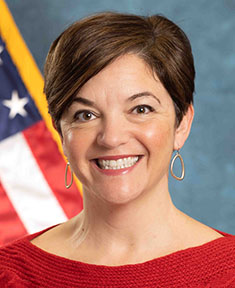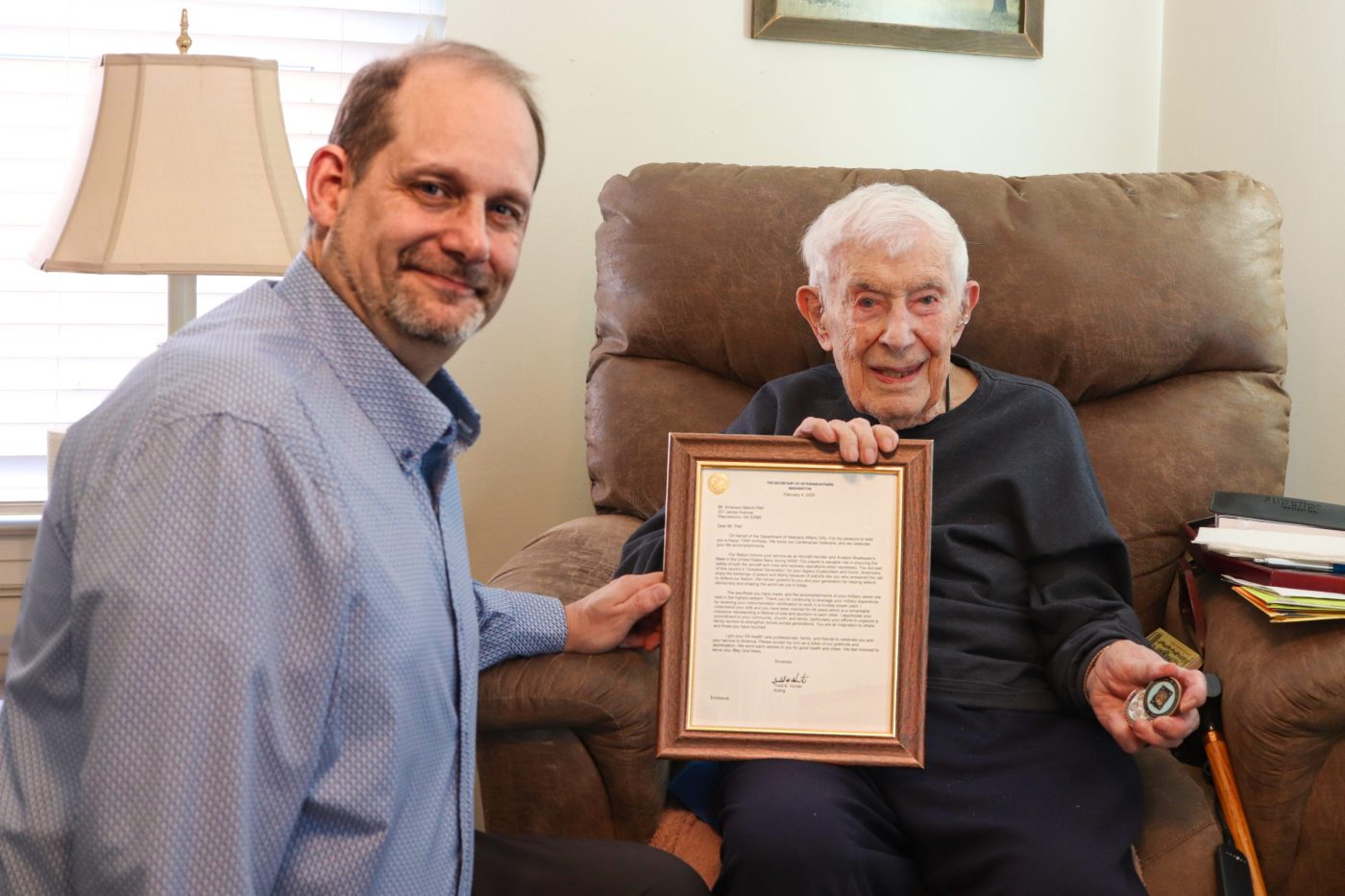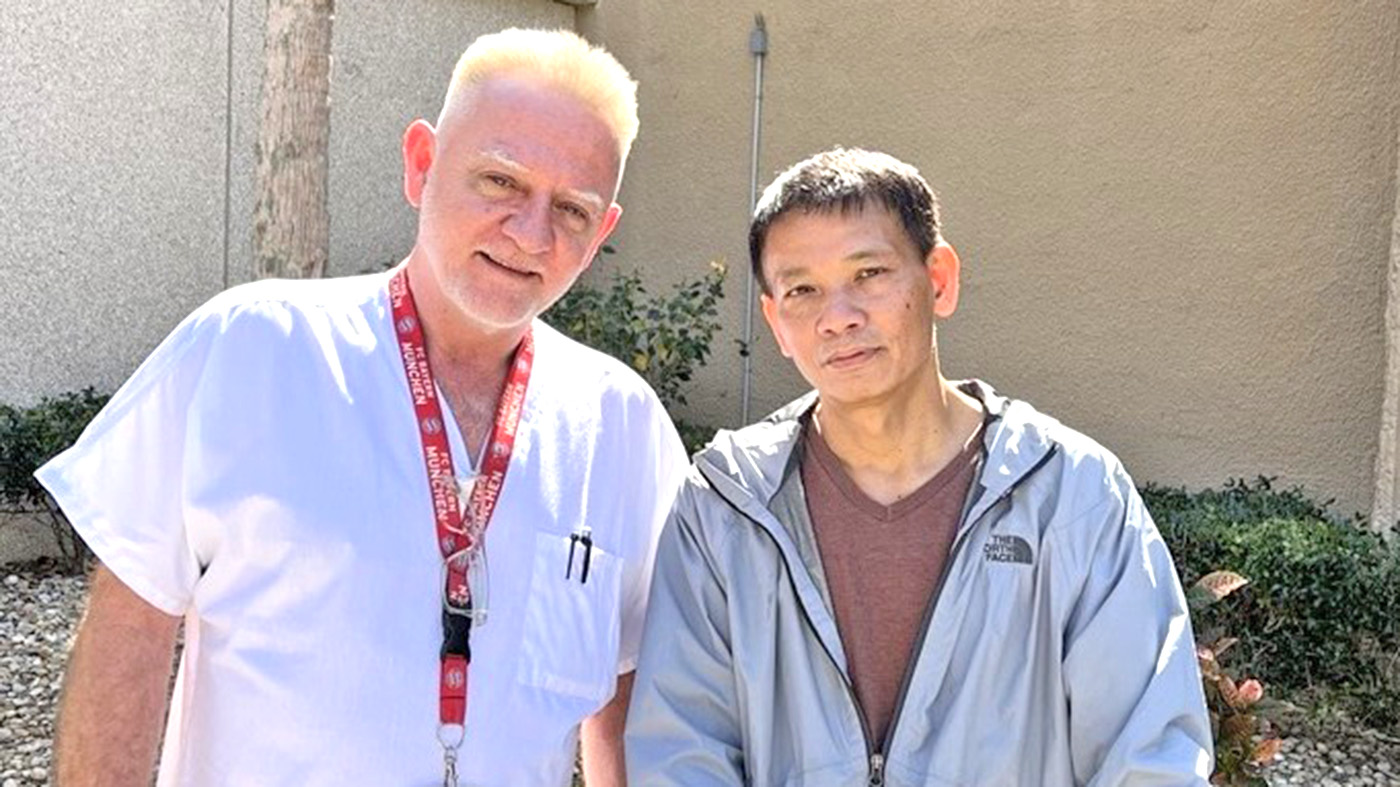Loneliness has been described recently as a social epidemic affecting half of U.S. adults. While the reasons for this epidemic are varied and complex, the consequence of loneliness is clear: Research shows loneliness puts people at higher risk for heart disease, dementia, depression and even premature death.
Health care is paying closer attention to how addressing social determinants of health—such as loneliness—can lower patients’ risk for developing serious health issues. VA has recognized that Veterans are more engaged with their own health when their individual needs are prioritized with their health care team.
Often, providers or social workers may call a Veteran for an appointment reminder and end up staying on the phone for an hour. When Lori Murphy and her colleagues noticed this trend, she knew something had to be done.
“In these calls, Veterans would share how some of them were going days or weeks without talking to anybody,” Murphy said. Their only social contact could be from a VA provider making a routine call.
Pivot to virtual social connection for Veterans
At the start of the pandemic, Murphy understood the need to stop in-home visits with Veterans, but she also knew the issue of loneliness would only grow. Working with her volunteers, they quickly shifted to a phone and video based program where trained volunteers would call Veterans. And Compassionate Contact Corps (CCC) was born.
“I started training more volunteers and Veterans, and the program spread like wildfire,” she said. Volunteers from the VA Center for Development and Civic Engagement had been sent home, but they still had the desire to help. Murphy continued working with its Deputy Director Prince Taylor to engage those volunteers virtually with CCC.
“These volunteers are active and engaged, and many of them are Veterans themselves. The Veterans they’re calling just want someone to talk to, to tell their story and have that interaction,” Murphy said.
By June 2020, the program had been successfully tested at the eight original sites, and the feedback from Veterans, volunteers and clinicians was overwhelmingly positive.
“One Veteran wasn’t getting out of the house and was not engaged socially. After a few months of calls with a volunteer building their confidence, they’re getting out of the house more, going to the gym and getting engaged in social events,” Murphy added.
Impact stories like these prove that these phone calls were not only decreasing loneliness but that they were also increasing overall health and quality of life.
As word spread about the program and the pandemic continued, Murphy knew it was ready to expand to additional sites.
In 2021, Murphy applied for the VHA Shark Tank Competition hosted by VHA Diffusion of Excellence and was named a Promising Practice.
“Shark Tank has helped take CCC to the next level as far as scaling to additional VA facilities,” Murphy said. “They’ve also helped me think through how to establish partnerships with other program offices to gain the support necessary to grow the program.” CCC is now in place at 75 facilities.
Looking ahead for Compassionate Contact Corps
“My goal is to have the program at every VA across the country. This has become a true passion project. I get a lot of support and feel very professionally satisfied, and not every employer is like that,” she added.
Want to learn more about the Compassionate Contact Corps? You can explore its page on the Diffusion Marketplace to learn more about this rapidly growing innovation. Want to learn more about innovation at VA? Visit our website, subscribe to our weekly newsletter, and visit VA Pathfinder to learn more about our opportunities.
Topics in this story
More Stories
Army Veteran Clayton Crosley teaches tai chi to fellow Veterans who find relief through the ancient practice.
When asked if he's a hero, 100-year-old WWII Navy Veteran Emerson Pell gave a short, modest response: “I was just a normal guy.”
A member of the Care Transition Clinic got to demonstrate his I CARE values for an Army Veteran.







At Soldiers Angels, Detroit we want to help support this effort. I’ve viewed the orientation materials and it looks great.
Teryl
Soldiers Angels VA Representative
Fine talk but really that’s all it ever seems to be. I have been in the VA Healthcare system a long time and unfortunately some of the old attitudes about veterans seeking care or receiving care are still only centered on the physical rehab is the only priority style of helping vets recover from injuries and long term bouts of medical conditions symptomology that bring us back for treatment stays ..sometimes for months at a time. Allegedly VA then is supposed to help us with our other problems..like finding SAFE long term housing .(.not just a roof in a run down neighborhood) or handed a list of “potential housing” just dropped in our laps. it’s very frustrating, scary, and extremely depressing to feel the VA still thinks that older vets should all be living n their own homes despite decades of prejudicial local landlords who refuse to make apartment complexes wheelchair accessible . That’s why so many if us disabled gets can’t find housing. Fear is a big thing in veterans minds….don’t add to it please by promising to help and then just funding another politically correct Investigative Committee.
This sounds like an awesome project! Is there a list of VA’s that that have the project going?